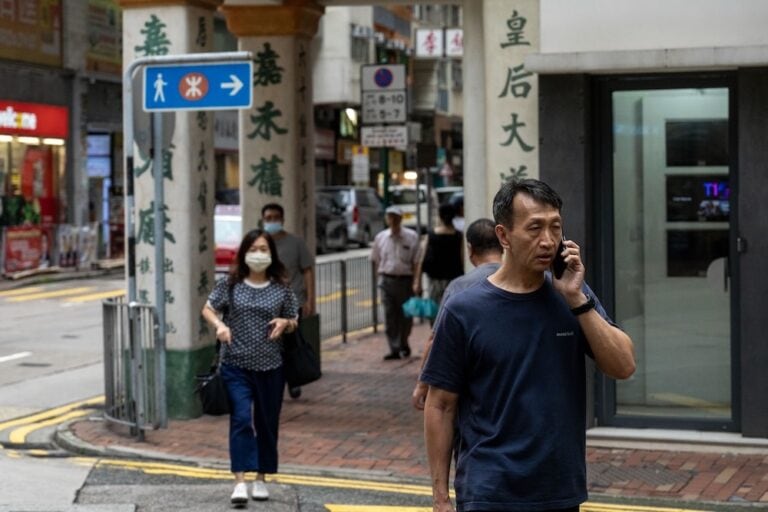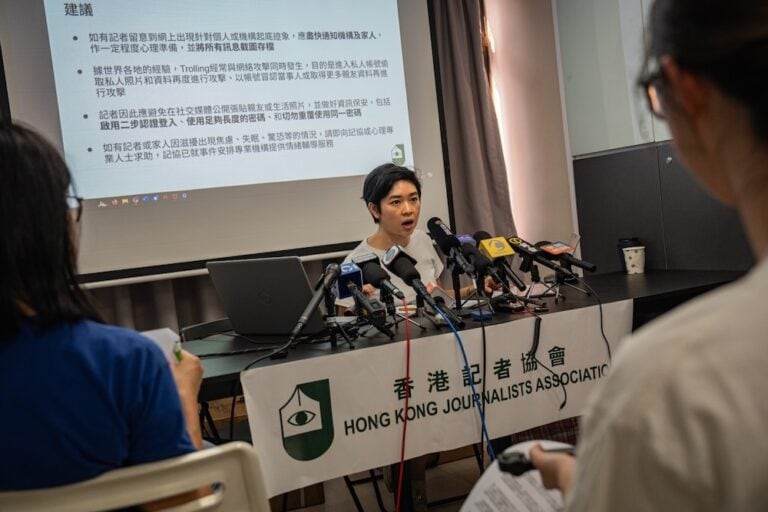The International Federation of Journalists strongly opposes the pressure on two Hong Kong media outlets to become tools for law enforcement; Commercial Radio and the "iSunAffairs" magazine are being asked to provide their journalistic materials to assist in the investigation of a corruption case.
The International Federation of Journalists (IFJ) is deeply concerned that the Independent Commission Against Corruption (ICAC) has filed a writ to the High Court of Hong Kong to demand two media outlets provide their journalistic materials to assist the ICAC to investigate a case. The IFJ believes the issuing of the writ reveals that the law enforcement offices of Hong Kong have a very weak understanding of press freedom.
Commercial Radio of Hong Kong and iSunAffairs, a HK E-magazine, received a writ from the ICAC on August 7, 2013 which demanded that the two media outlets provide the journalistic materials used in an interview which was aired and published on January 24 and 25. The ICAC writ relies on Section 84 of the Interpretation and General Clauses Ordinance. It states that a judge may issue such an order if he is satisfied the material is likely to be of substantial value to the investigation of an arrestable offence where there are reasonable grounds for believing an offence has been committed. Alternatively, the judge must be satisfied that the material is likely to be relevant evidence in proceedings for the arrestable offence.
According to various reports, ICAC asked Commercial Radio for journalistic materials in May but the request failed. Both media outlets said the case would be handled by lawyers and the case is due for a hearing on August 27.
The Hong Kong Journalists Association (HKJA), an affiliate of the IFJ, and the Hong Kong News Executives’ Association, academics and legislative councillors, have voiced their strong opposition to the move.
“Not only is it common sense, but there is also a huge body of relevant cases from the European Court of Human Rights that show that protection of journalistic materials is one of the basic conditions for press freedom,” the IFJ Asia-Pacific Office said.
“Without such protection, sources may be deterred from assisting the press in informing the public on matters of public interest. As a result the vital public-watchdog role of the press may be undermined.
“However, it seems that the law enforcement bodies of Hong Kong do not really understand the crux of the matter and have been repeatedly abusing their powers to force media to become tools of the prosecution.
“It is also deeply worrying that Hong Kong law enforcement bodies are adopting the practices of the Mainland, where many journalists are forced to give statements to the police without any due process.
“All law enforcement officers should be treated with the utmost caution. Otherwise, there will be a chilling effect where journalists are seen as assisting the authorities to investigate cases whenever they are needed.”
We urge the Judiciary of Hong Kong to consider the recent case of Martin and Others v France in the European Court of Human Rights when considering the ICAC’s application. In the French case, the European Court overruled the verdict of a judge who issued a search warrant on the premises of a newspaper to determine under what circumstance and conditions journalists had obtained a confidential draft report concerning the management of the office.
We also urge the media owners to say no to all attempts by law enforcement officers to abuse their powers in order to protect the professional duties of their journalists to report facts which are in the public interest.


